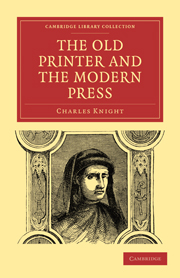Summary
On the 8th of February, 1696, our friend John Dunton completed the nineteenth volume of ‘The Athenian Mercury, resolving all the most nice and curious questions proposed by the ingenious.’ This penny tract, published twice a-week, consisted of a single leaf. “The ingenious” ceased to question, and “The Athenian Society,” as the bookseller called his scribes, ceased to answer, after six years of this oracular labour. There came an irruption of the barbarians, in the shape of “nine newspapers every week.” John proposed to resume his task “as soon as the glut of news is a little over.” The countryman waiting for the river to roll by was not more mistaken. In 1709 there was one daily paper in London; twelve, three times a week; and three, twice a week. Amongst those of three times a-week was ‘The Tatler,’ which commenced April 12, 1709. The early Tatlers had their regular foreign intelligence. They were as much newspapers as ‘The Flying Post’ and ‘The Postboy.’ But Isaac Bickerstaff, Esq., very soon discontinued the information which he derived from letters from the Hague and advices from Berlin. He had something of a more original character to offer his readers. The state of popular enlightenment at this period has been described by Johnson in his Life of Addison:— “That general knowledge which now circulates in common talk was in his time rarely to be found.
- Type
- Chapter
- Information
- The Old Printer and the Modern Press , pp. 218 - 237Publisher: Cambridge University PressPrint publication year: 2010First published in: 1854



